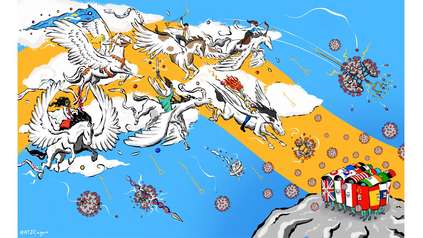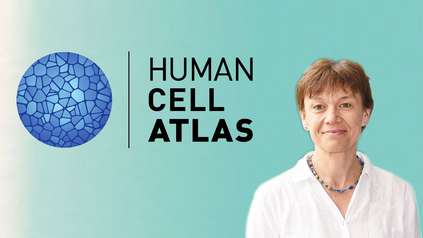Sanger scientist receives Chan Zuckerberg Initiative support for COVID-19 study
Roser Vento-Tormo, Group Leader at the Wellcome Sanger Institute is one of the recipients of funding from the Chan Zuckerberg Initiative (CZI) to study how COVID-19 progresses in patients, at the level of individual cells and tissues.
Joint project leader with Esteban Ballestar from the Josep Carreras Institute, Roser and her collaborators will study positive samples from up to 50 COVID-19 patients using single-cell RNA sequencing methods, to create a cell atlas of these immune cells. Patients will include people with autoimmune diseases, such as systemic lupus erythematosus, rheumatoid arthritis, psoriasis, and multiple sclerosis, as well as immunodeficient patients, to help understand the immune response and progression of SARS-CoV-2 infection.
CZI is supporting five projects studying COVID-19 progression, with a total of $750,000 funding. These projects will create single-cell datasets from donors infected by SARS-CoV-2 and provide critical insights into how the virus infects humans, which cell types are involved, and how the disease progresses.
The five new projects will use similar approaches to the COVID-19 Cell Atlas work with the Sanger Institute and Human Cell Atlas consortium that recently revealed key nose cells were likely entry points for the SARS-CoV-2 coronavirus. This research was also partly funded by CZI. The new projects will profile cells in infected tissues and the immune system in COVID-19 patients.
“I’m delighted that the Chan Zuckerberg Initiative is supporting this single-cell work. Our study will characterize the immune response of COVID-19 patients with pre-existing immune conditions. Creating a cell atlas of these immune cells will help understand how the immune system reacts to the virus, and the host susceptibility to SARS-CoV-2 infection.”
Roser Vento-Tormo, Group Leader at the Wellcome Sanger Institute
In addition to the work led by Roser Vento-Tormo and Esteban Ballestar, the new grants will support projects led by investigators at Harvard Medical School, Massachusetts General Hospital, MIT’s Ragon Institute, the Broad Institute of MIT & Harvard, Columbia University and VIB-UGent, with funding allocated equally among the five projects. All data generated by these grants will quickly be made available to the scientific community via open access datasets and portals.
“Single-cell technologies provide a powerful platform for researchers to understand the cellular basis of any disease — including COVID-19. CZI’s support of the Human Cell Atlas has already enabled valuable insights into COVID-19 — including identifying cells in the nose that may be entry points for the virus — and we’re proud to continue supporting this fundamental resource and increase our collective ability to address the coronavirus pandemic.”
Cori Bargmann, CZI Head of Science





